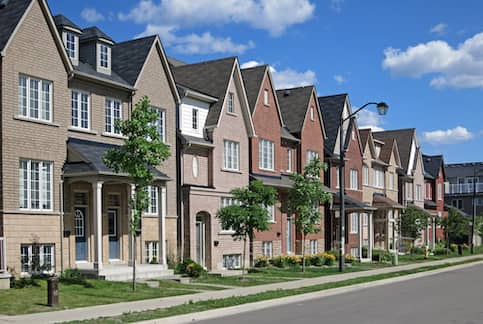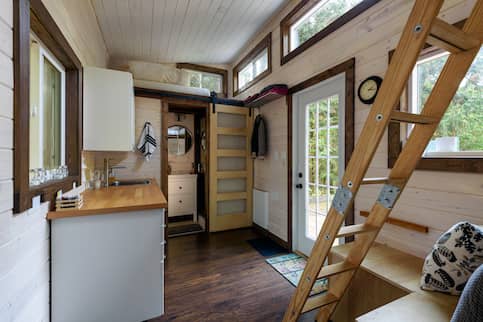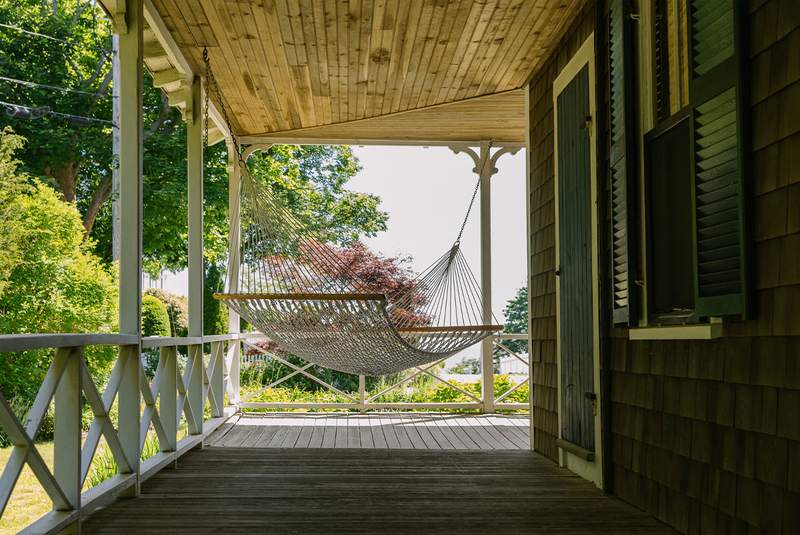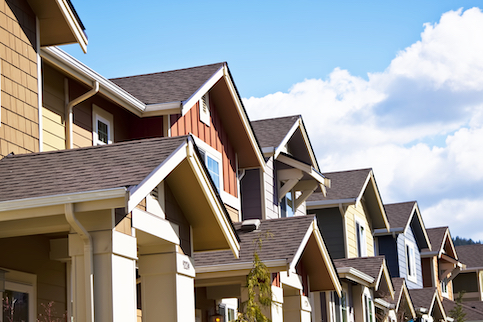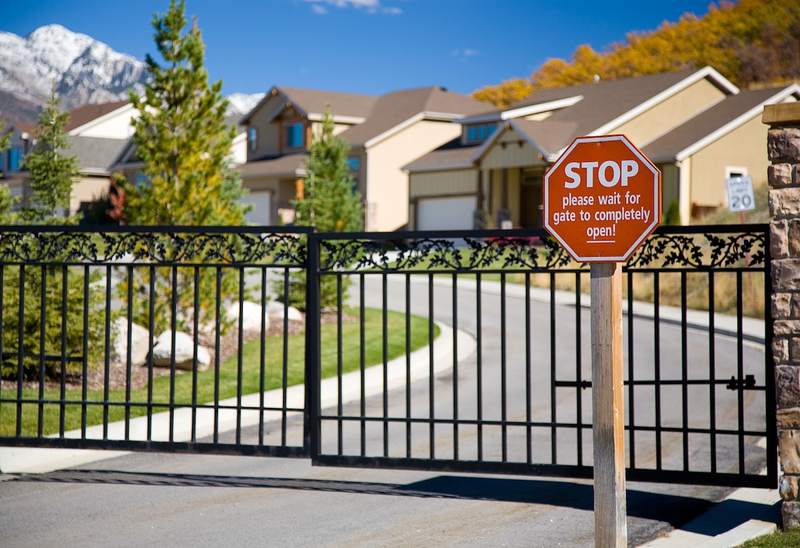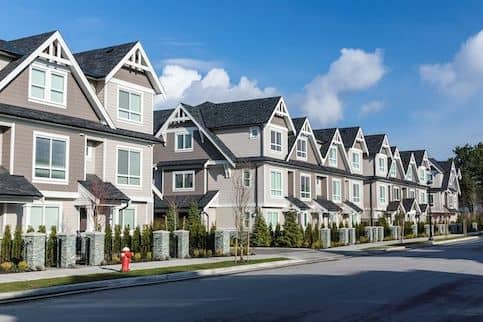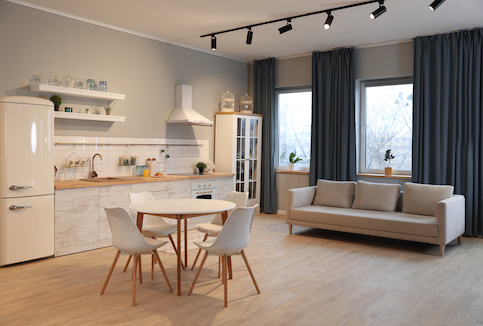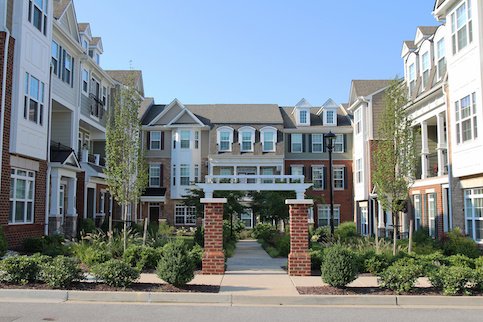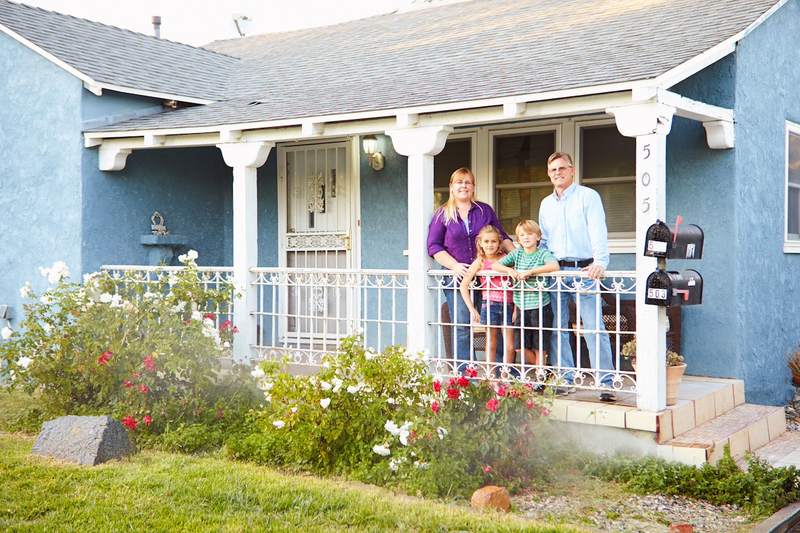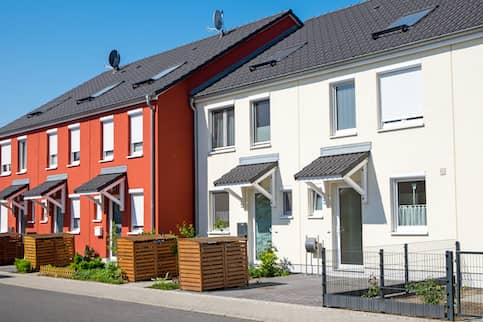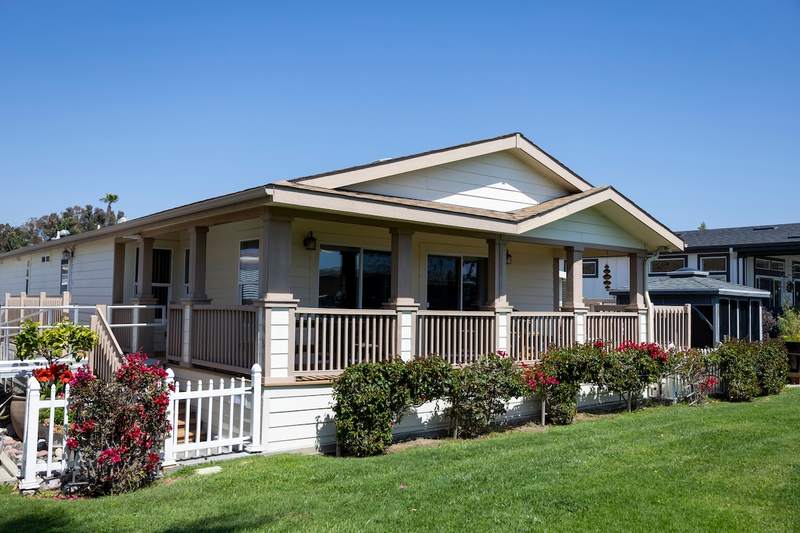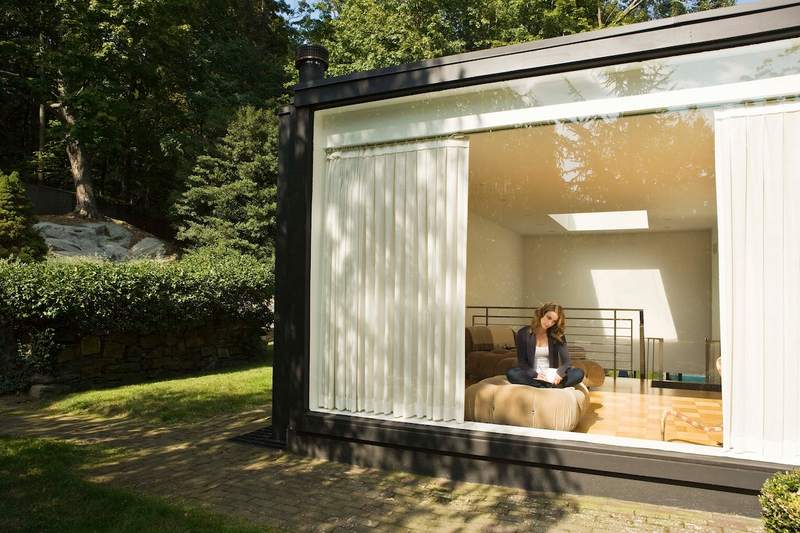When seeking the right type of house for you, you’ll almost certainly find a lot of options available. Trying to decide between an apartment and a townhouse, perhaps? Knowing the main differences between apartments and townhouses will give you an advantage.
Townhouses are generally owner-occupied homes that share one wall or multiple walls with a house next door. In contrast, apartments are generally rental units in a larger building owned by a company or individual.
Let’s take a closer look at townhomes and apartments, including how they differ, their pros and cons, and which might be the better choice for your new home.
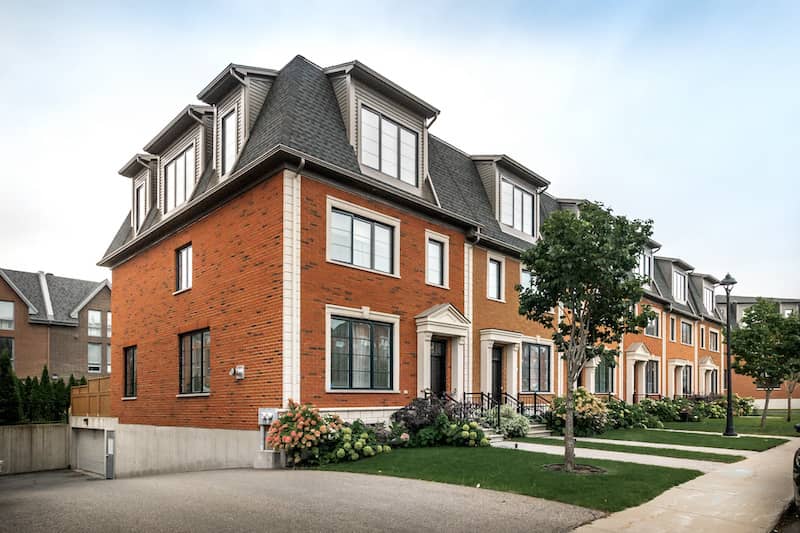
What Is A Townhouse?
Townhouses, sometimes called townhomes, are individual homes that have at least two stories of living space. They’re characterized by sharing one or two walls with adjacent houses, and they may also share features such as a yard, driveway or other amenities.
Townhouses are usually owned outright and occupied by their owners. Similar to a condominium, townhouses may be controlled by a homeowners association (HOA). This can mean some of the amenities for a community of townhouses are paid for collectively by the members of the neighborhood.
See What You Qualify For
Buy A Home
Discover mortgage options that fit your unique financial needs.

Refinance
Refinance your mortgage to have more money for what matters.
Tap Into Equity
Use your home’s equity and unlock cash to achieve your goals.
Townhouse Pros And Cons
If you’re thinking about a townhouse for your next home, there’s a lot to consider. We’ll take a look at some of the pros and cons of townhouses so you can familiarize yourself with the benefits and disadvantages.
Pros
- Amenities: Many townhouse communities come with perks such as landscaping services, clubhouses and swimming pools. You’ll pay monthly upkeep fees, but these services can be a welcome perk.
- Homeownership: Being a homeowner means your property is more than just a place to live – it’s an investment in your future. It also means that, if needed, you can access your home equity through a cash-out refinance, HELOC or home equity loan. You could also profit from the resale value if you sell your home.
- Affordability: Townhouses are most often more expensive than apartments, but they’re generally cheaper than larger single-family homes. If you’re searching for a starter home or you’re a potential homeowner on a smaller budget, a townhouse might be a good choice.
- More living space: With two floors, townhouses usually feel roomier than apartments and many have more square footage. Townhouses commonly feature a dining room, a laundry room and a half-bathroom you might not find in an apartment.
Cons
- HOAs: HOAs have benefits, but they often come with some extra hoops to jump through. If your townhouse is part of a homeowners association, the HOA may need to approve you before you can buy the home. This can be time-consuming and draw out your closing process. You’ll also have to pay HOA fees once you get settled in.
- A higher price tag: Homeownership of a townhouse typically comes with a higher upfront cost than renting an apartment. That’s because you pay closing costs and, in many cases, make a significant down payment on your mortgage. You’ll likely also have higher overall monthly fees, which will include your mortgage payment (which most often includes property taxes and homeowners insurance fees in an escrow account), along with utilities, upkeep costs and possible HOA fees.
- Privacy and noise: Since you’re living in an attached home, you might have noisy neighbors. In a townhouse, you’ll enjoy more privacy than in an apartment building but less than you’ll have in a free-standing home.
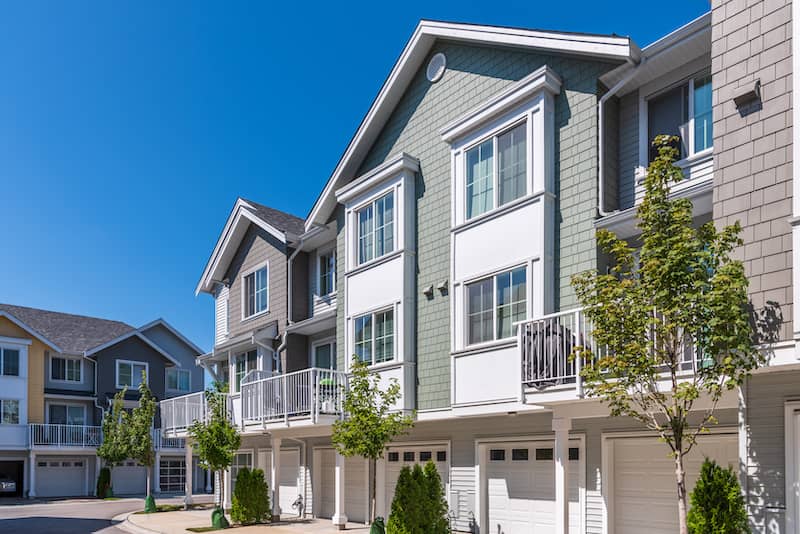
What Is An Apartment?
An apartment is usually an individual unit in a larger building and is typically occupied by renters. Apartments can vary in size but generally feature less space than a single-family home or townhouse. Apartment buildings usually contain multiple units, so you’ll share space and amenities with other tenants.
Apartment Pros And Cons
If you’re thinking of living in an urban area, you might consider renting an apartment. Next, we’ll break down some of the common pros and cons of apartment life.
Pros
- Flexibility: You may be able to negotiate the length of your lease and move or renew your lease as needed. If you think you might move soon, or you just aren’t sure, renting potentially gives you more choices.
- Convenience: Most apartment complexes are located in urban areas. This can mean easy accessibility to shopping, public transportation and local nightlife.
- Lower costs: Generally, apartments come with a lower price tag than townhomes or traditional houses. But in addition to monthly rent, you’ll still likely pay a security deposit and some utilities. However, you’ll avoid some of the higher costs of homeownership.
Cons
- Limited customization: Apartment living usually means leaving the space as you found it at the beginning of your lease. Making changes such as painting, installing fixtures or adding appliances will likely be prohibited.
- Less privacy: Of all your housing options, apartments might have the least privacy. Expect shared walls and other tenants above or below your unit or both. You may also share common areas such as laundry rooms, lobbies and courtyards.
- Less living space: Although some roomy apartments do exist, apartments in urban areas are often on the smaller side. Some feature combined kitchen and living spaces or lack features such as a dining room or an office.
Find A Mortgage Today and Lock In Your Rate!
Get matched with a lender that will work for your financial situation.
Townhouses Vs. Apartments: At A Glance
The main difference between a townhouse and an apartment is related to structure and ownership. Townhouses are attached homes that are usually independently owned. Apartments are individual units within a larger building that renters customarily occupy.
That said, any one difference or combination of differences between townhouses and apartments could influence which one you choose. For example, either an apartment or a townhouse might suit your lifestyle or financial needs better than the other. Here’s a quick rundown of the key differences between a townhouse and an apartment:
Townhouse | Apartment |
|---|---|
More space | Less space |
Generally, owner-occupied | Rented |
Multiple floors | Generally, one level |
Separate entrances | Shared entrance |
Long-term investment | More flexibility |
Availability in cities and suburbs | More common in cities |
Various payments, including a down payment, monthly mortgage payment, utility bill and possible HOA fees | Various payments, including a security deposit, monthly rent payments and payments on some or all utilities |
Shared community amenities | Shared community amenities |
Apartment Vs. Townhouse: Which Should You Choose?
Determining whether to rent or buy can still be a hard choice even once you have a good understanding of what both apartment living and townhouse living have to offer. Next up is a more in-depth review of some factors to consider if you’re trying to make a choice between living in an apartment or a townhouse.
Finances
You’ll need a solid credit score regardless of whether you’re renting an apartment or buying a townhouse. However, with the purchase of a townhouse, you’ll also need to save for a down payment (unless you secure a zero-down mortgage), cover closing costs and ideally have an emergency fund for unexpected expenses – just as you would with the purchase of a traditional home.
Another important factor is your debt-to-income ratio (DTI), which can impact your ability to get approved for a mortgage. If you’ve had some credit missteps, aren’t making much money right now or have a lot of debt, you might want to wait before buying. You can use the time to pay down debt and save as much as possible.
Flexibility
Even if you can afford to buy a townhouse right now, renting might be a better option if you aren’t the type of person to stay put in one area for long. Owning a townhouse can make relocating harder. However, if you love your location and your job and want to put down roots, it might be time to buy a townhouse.
Location
Sometimes our choices are limited by what’s in a particular area. For example, if you’re moving to the suburbs, a lot of apartments may not be available. This could mean buying a townhouse in the city or town offering your most affordable homeownership option. Townhouses aren’t available everywhere, either, though. So, you might need to rent an apartment or buy a condo.
Personal Preference
Housing is always going to be about making the best decision for you at any given time. If you’re living in an area where both apartments and townhouses are up for grabs, you’ll have the best sense of the right fit. If you need another perspective, you can always ask a real estate professional to weigh in.
The Bottom Line
Both apartments and townhouses have a lot to offer. Where to live and how much you can afford are big decisions. Choosing between an apartment and a townhouse means taking a hard look at your finances and being realistic about what you need in a space.
Living in an apartment in the short term can help put you in a better position to buy in the future. Then again, if you’re in a reasonably good financial position and value the many benefits that buying a townhouse would afford, it may be time to move forward with a purchase. Weigh your options carefully and be sure to consider how much room and the type of living arrangement that will best suit you and anyone you may be sharing a place with.
Find A Mortgage Today and Lock In Your Rate!
Get matched with a lender that will work for your financial situation.

Victoria Araj
Victoria Araj is a Staff Writer for Rocket Companies who has held roles in mortgage banking, public relations and more in her 15-plus years of experience. She has a bachelor’s degree in journalism with an emphasis in political science from Michigan State University, and a master’s degree in public administration from the University of Michigan.
